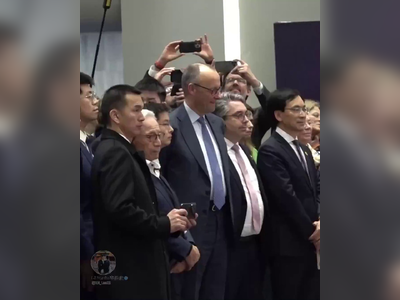Italian Healthcare Contract Negotiations Stumble at the Eleventh Hour
Crucial renewal of Italy's healthcare contract for 2022-2024 stalled by dissent from major unions, amid attempts to bridge the representational divide.
In a significant development impacting Italy's public health sector, the anticipated renewal of the national healthcare contract for 2022-2024 has failed to advance.
The negotiations, held in Rome, have been undermined by the refusal of several key unions to endorse the agreement.
The major unions CGIL and UIL had already signaled their disapproval of the proposed terms.
In a last-minute decision, the autonomous union Nursing Up joined the dissenters, further complicating the pathway to consensus.
Negotiations have been a complex affair, as unions balance the needs of healthcare professionals with economic constraints and policy directives.
While the CISL and FIALS unions, along with another autonomous union, NURSIND, opted to support the contract, their collective approval fell short of the 51% representative threshold required for ratification.
This threshold is a crucial statutory requirement to validate contracts within Italy's Public Administration sector, ensuring that agreements reflect a majority consensus among the workforce.
The impasse highlights ongoing challenges in aligning union priorities with governmental healthcare policies, as well as various stakeholder expectations amidst Italy’s changing socio-economic landscape.
The discord among unions signifies deeper issues related to labor rights, compensation, and working conditions for healthcare professionals, topics which have taken heightened precedence following the strains of the COVID-19 pandemic.
As Italy continues to navigate the evolving dynamics of its healthcare system, these negotiations underscore the critical need for collaborative and inclusive dialogue.
Failure to renew the contract in a timely manner risks exacerbating tensions within an already strained healthcare workforce, potentially affecting service delivery and morale.
The current deadlock is a poignant reminder of the delicate balancing act between labor rights and administrative requirements.
As stakeholders regroup, the path to a mutually acceptable agreement remains uncertain, but it is clear that all parties must engage in renewed discussions, with a focus on bridging the gaps that currently hinder progress.
The negotiations, held in Rome, have been undermined by the refusal of several key unions to endorse the agreement.
The major unions CGIL and UIL had already signaled their disapproval of the proposed terms.
In a last-minute decision, the autonomous union Nursing Up joined the dissenters, further complicating the pathway to consensus.
Negotiations have been a complex affair, as unions balance the needs of healthcare professionals with economic constraints and policy directives.
While the CISL and FIALS unions, along with another autonomous union, NURSIND, opted to support the contract, their collective approval fell short of the 51% representative threshold required for ratification.
This threshold is a crucial statutory requirement to validate contracts within Italy's Public Administration sector, ensuring that agreements reflect a majority consensus among the workforce.
The impasse highlights ongoing challenges in aligning union priorities with governmental healthcare policies, as well as various stakeholder expectations amidst Italy’s changing socio-economic landscape.
The discord among unions signifies deeper issues related to labor rights, compensation, and working conditions for healthcare professionals, topics which have taken heightened precedence following the strains of the COVID-19 pandemic.
As Italy continues to navigate the evolving dynamics of its healthcare system, these negotiations underscore the critical need for collaborative and inclusive dialogue.
Failure to renew the contract in a timely manner risks exacerbating tensions within an already strained healthcare workforce, potentially affecting service delivery and morale.
The current deadlock is a poignant reminder of the delicate balancing act between labor rights and administrative requirements.
As stakeholders regroup, the path to a mutually acceptable agreement remains uncertain, but it is clear that all parties must engage in renewed discussions, with a focus on bridging the gaps that currently hinder progress.
Translation:
Translated by AI
AI Disclaimer: An advanced artificial intelligence (AI) system generated the content of this page on its own. This innovative technology conducts extensive research from a variety of reliable sources, performs rigorous fact-checking and verification, cleans up and balances biased or manipulated content, and presents a minimal factual summary that is just enough yet essential for you to function as an informed and educated citizen. Please keep in mind, however, that this system is an evolving technology, and as a result, the article may contain accidental inaccuracies or errors. We urge you to help us improve our site by reporting any inaccuracies you find using the "Contact Us" link at the bottom of this page. Your helpful feedback helps us improve our system and deliver more precise content. When you find an article of interest here, please look for the full and extensive coverage of this topic in traditional news sources, as they are written by professional journalists that we try to support, not replace. We appreciate your understanding and assistance.











